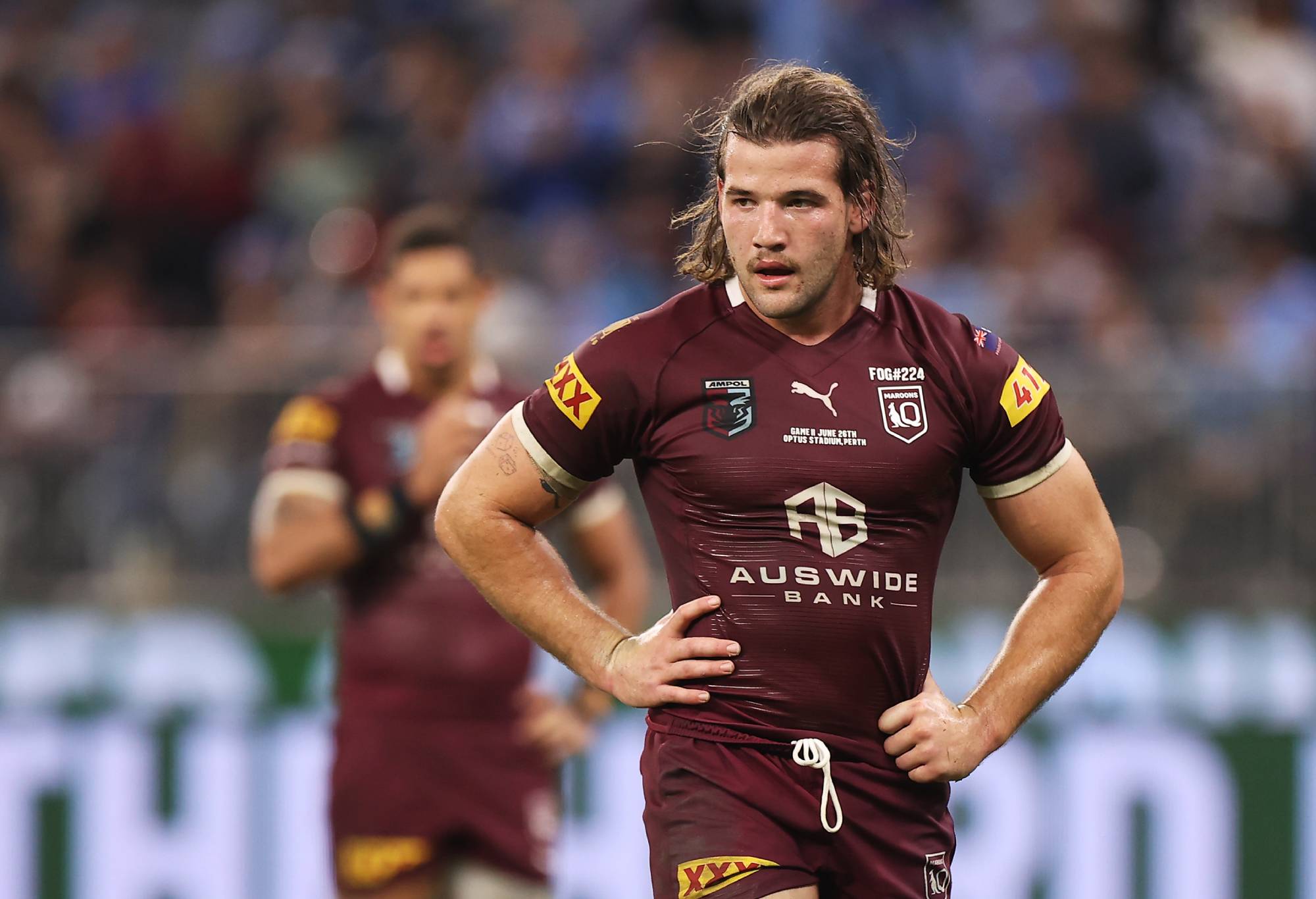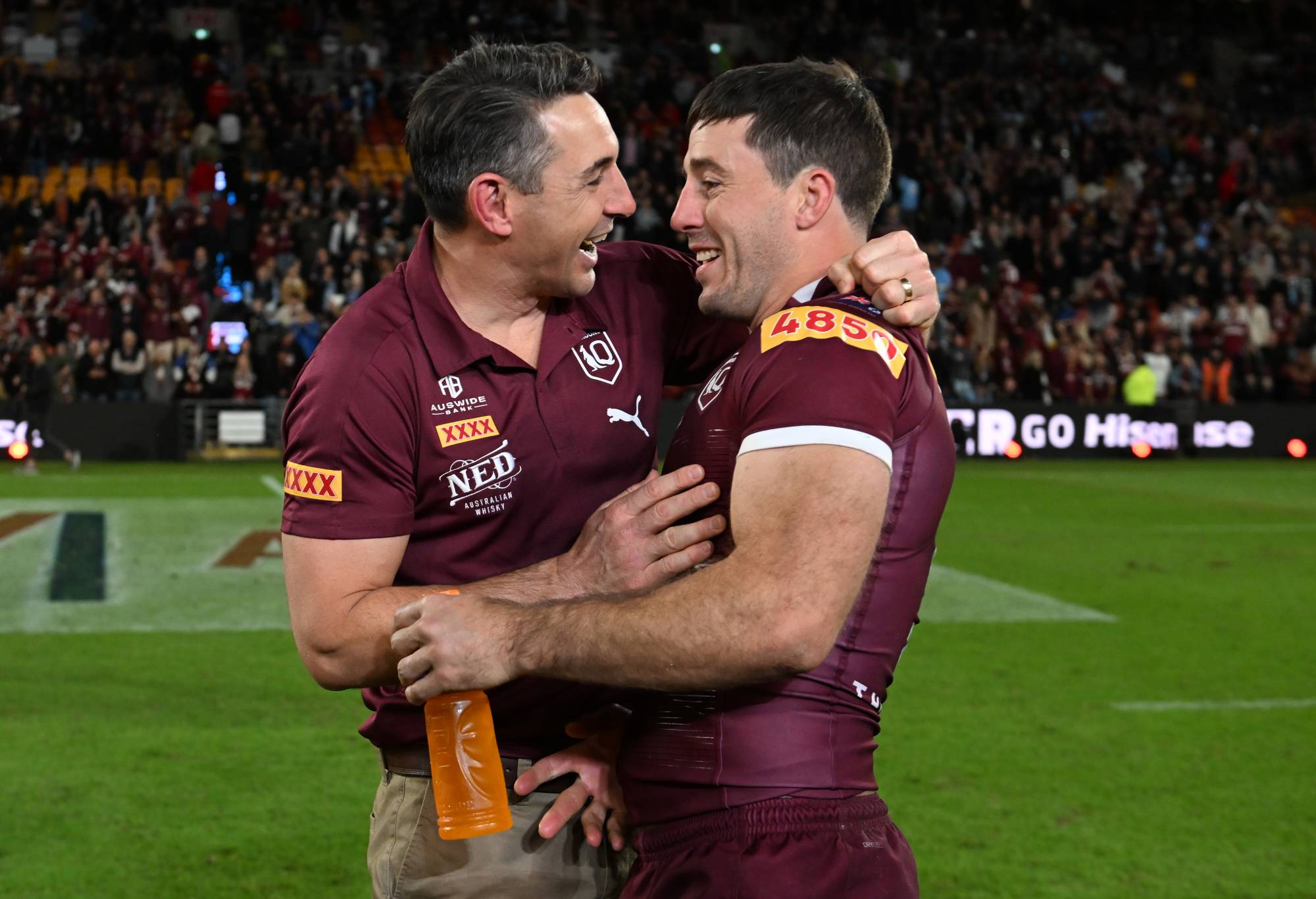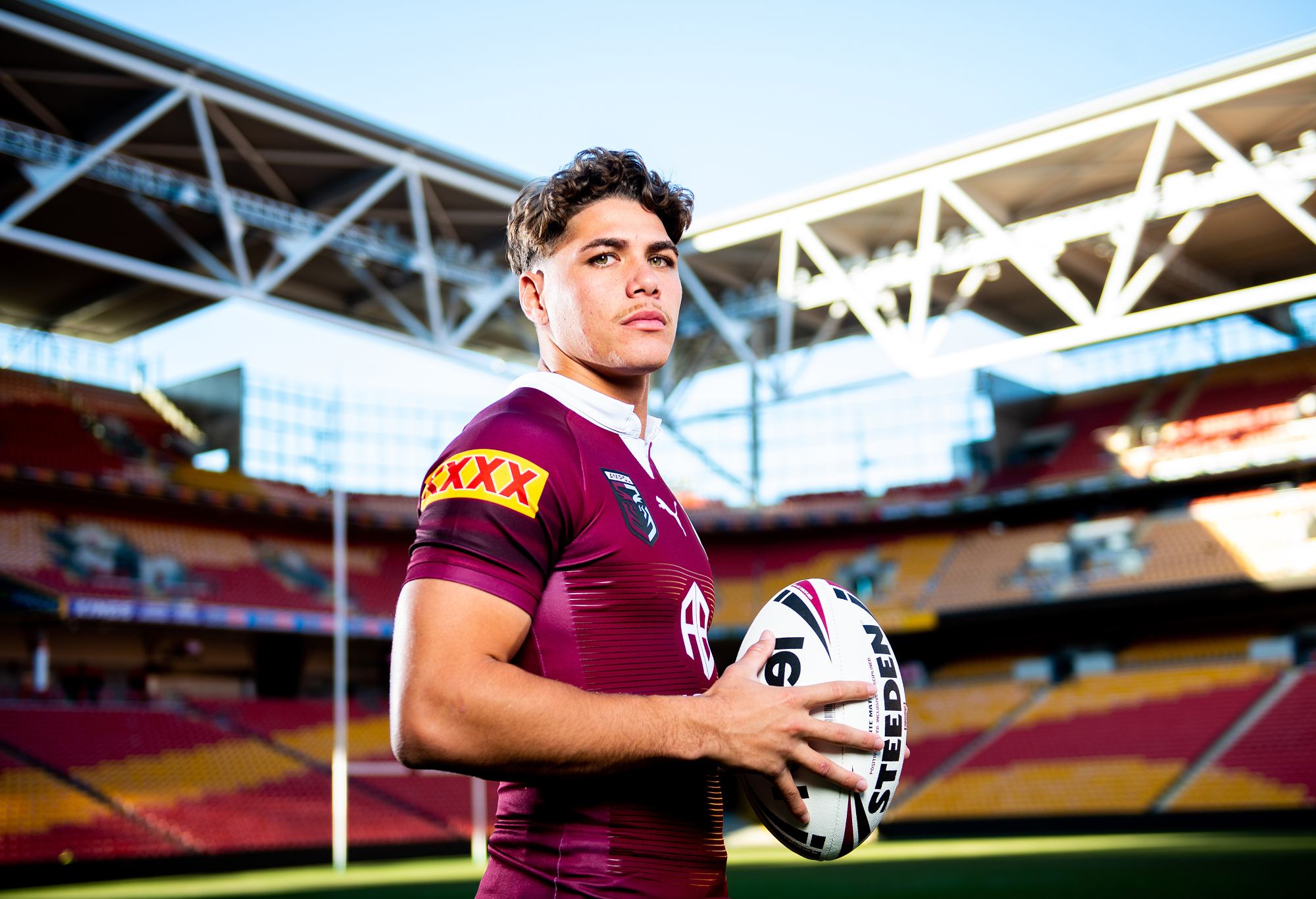Why would you doubt Billy Slater? There’s not many alive who know more about winning State of Origin games than the Maroons coach, who has made a career out of making New South Wales look silly.
Last year he did it from the coaches’ box for the first time, but the song remained the same. It’s like they have some deeper understanding of the competition. Do they get it?
Slater was very coy about discussing his tactics last year, but he shouldn’t have been. The Maroons put on a bit of a masterclass.
Game 1 was about as well as a team can play against the Panthers style of footy that Brad Fittler’s Blues have favoured, shutting down access to the wings through their centres’ rush defence and winning the moments in the middle via their aggressive central control.
The blueprint for this year might not be enormously different, especially given the personnel and the styles of play seen from the clubs that provide the players. Let’s get into it.
This is our Queensland Maroons’ tactical deep dive – our full breakdown of the NSW Blues’ tactics for Game 1 is here.
Make the pitch skinny
This was the central gambit last year, and based on the selections of Slater, it’s what they’ll be looking to do again.
The edge defence has been remodelled with Hamiso Tabuai-Fidow replacing Dane Gagai and both backrowers moved around with David Fifita and Tom Gilbert moved in, leaving only Valentine Holmes from the four that started in 2022.
Throw in that they’ve also picked four forwards on the bench it all looks like a clear plan to muscle up and win the middle. The downside will clearly be a lack of speed on the edges, but that will be counteracted by making the pitch as skinny as possible and tempting NSW to go around them.
In 2022, the best of the Blues came when they got their shape going and isolated outside backs, either through favourable one-on-ones – anyone against Dane Gagai – or, when the umbrella defence came, through harbour bridge passes and kicks in behind.
That was last year, too, when the centres weren’t Tom Trbojevic and Latrell Mitchell. With those two on deck, the best policy is to stop them getting the footy in the first place, which comes with the inherent risk of opening the space in behind.
Slater seems happy enough with this. He’ll bank that NSW will kick the ball away – or throw an intercept to Selwyn Cobbo – as often as they’ll be able to isolate Turbo or Latrell against Holmes and Hammer.
Expect to see the wingers standing well in from the touchline and the brolly being taken out again every time the Blues look to spread.

(Photo by Mark Kolbe/Getty Images)
Speed up the game
The big upside of the selection policy is that Queensland should be able to keep the grind going for longer. In the three games last year, they lost the one where there were a below average number of sets and won the two where it was above average.
The quicker games take the biggest toll in the forwards amd Slater conclusively won the interchange battle with Fittler last year. He will be looking to keep that advantage into this year.
It’s pretty easy stuff to predict. Queensland have four props in the 17, which doesn’t include Jai Arrow, Tom Gilbert, Reuben Cotter and Tino Fa’asuamaleaui, who are all more straightforward, up-and-down middle forwards that their NSW counterparts.
David Fifita is the only specialist edge player in the 17 – the Blues have three – and the Maroons haven’t picked a bench utility to cover backline injuries. All eight subs are going to be in the forwards, save for the Harry Grant/Ben Hunt hooker switch.
Head knocks and injuries aside, Slater could probably name his interchange pattern right now, so settled and uniform is his pack. Needless to say, Fittler could not do the same.
Keeping that speed and making sure that fatigue is in the game is a surefire way to ram home the middle advantage that Queensland have.
Expect to see Hunt and Daly Cherry-Evans kicking for corners and not the touchline in order to limit stoppages in play, with a fair few early in the count as well.

Billy Slater and Ben Hunt celebrate. (Photo by Bradley Kanaris/Getty Images)
Rely on the x factor
A clear divide between club footy and rep footy is the ability of individuals to drastically alter a game.
The teams that tend to win out over a full NRl season are the most cohesive units with the best system, those that can lean into structure when individuals inevitably get injured or suspended.
Great systems deliver you to the big moments, at which point the elite individuals step up to win the moments.
That’s not really true in rep footy, Origin, international or otherwise. At last year’s World Cup, a leading NRL coach who was on secondment with a national team explained it as a ‘platform’ rather than a system, because building a system was impossible in the time available.
If there was ever a tactical equivalent of “Queensland get Origin”, then this is it. For years, they have been experts at setting a platform of non-negotiables that create the space for their best players to do their best work.
The ‘Queenslander” mentality is basically just this: scramble hard, tackle aggressively, stay in the fight. Then the wins come because the talent is there to win the moments.
It’s an interesting aside that, of their last ten defeats, six have been thrashings. When they don’t do the non-negotiables, it can fall apart rapidly.

Reece Walsh. (Photo by Bradley Kanaris/Getty Images)
The ‘moments’ aspect also gives a read on their selection policy, namely around fullback.
There is a surfeit of experience in the spine, and in both Cherry-Evans and Hunt, the Maroons have truly elite game managers. In Grant and Cam Munster, they have established moments players in key positions.
It gives them the freedom to carry a high-ceiling, low-floor player like Reece Walsh. He can be an error machine at times and offers next-to-no defensive shield, but his ability to own moments is such that it’s worth taking the punt for the upside and banking on the platform to defend the down.
While Kalyn Ponga’s repeated head injuries and positional change at club level have opened the door a fullback, Walsh is the sort of player they can afford to take a risk on.
Indeed, he’s basically where Ponga was in 2019, when they threw him in at 1 into a very similar spine situation.
It’s not surprising that Slater likes this idea. Craig Bellamy coached him for 319 games and this is his favourite move.
When you see the long list of players who were good for the Storm and rubbish elsewhere, it’s because they were honest toilers who enabled magicians and Bellamy was an expert at getting them just enough information to do their job to the best of their ability.
Slater is blessed because, at Origin level, even his toilers are elite players. Looking at his 17, it’s evident that four guys will have the licence – Munster, DCE, Walsh and whichever of Hunt and Grant is on the field – and the other nine will be supporting cast.
The only deviation from this might be Fifita, who is very much a high ceiling player, but even he might be restrained in search of the collective goal.
Either way, it’s a markedly different approach to NSW, who are hardly going to tell Turbo and Latrell that they are running and tackling machines designed to create opportunities for someone else.
Slater knows that the talent he has suits a more conservative, committed style, which has also delivered countless results for his state in the past. It’s unlikely that he’ll change that at all come Wednesday night.































































































